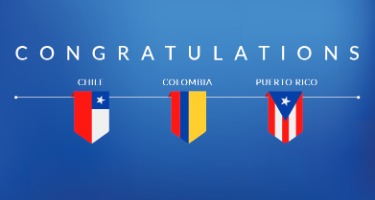Colombian labor and employment law are in charge of “achieving justice in the relationships between employees and employers.” This has been done by implementing several regulations, such as the legal statutory salary, a social security system linked to formal employment, stability in employment laws (for union members, pregnant women, and sick people), limited use of outsourcing, among others.
Paradoxically, the more rigid these regulations are, the higher the unemployment or informal employment rates become. This situation triggers an important question: how is justice going to be achieved in labor and employment relations if the creation of formal employment is threatened by the rigidity of the law?
The answer to that question is found in the second part of the first article of the Colombian Labor Code (cited above), which states that justice between employers and employees is achieved “within a spirit of economic coordination and social equilibrium.” This means that labor and employment laws should be dynamic and must be able to adapt to the historical circumstances that the country faces, as has happened before. For example, in the 1990s when Colombia opened its economy, the Law 50 of 1990 was issued, and it successfully decreased the labor and employment costs for companies. This measure made the Colombian market internationally competitive. Currently, Colombia is going through another historical moment that is demanding additional labor and employment reforms.
Currently, Colombia has an unemployment rate of 8.8 percent and an informal employment rate of 58.9 percent. At the same time, the Colombian government is undergoing a peace process with the Revolutionary Armed Forces of Colombia—People's Army (FARC–EP) guerrilla movement, which has been involved in the Colombia’s armed conflict since 1964. On July 23, 2016, both sides signed a historic ceasefire deal to end the 50 years armed conflict.
If this peace process is carried out successfully, the mentioned statistics would rise dramatically. On one hand, the actors of the conflict (both legal and illegal) could march toward the unemployment lines. On the other hand, due to the peace agreement and the ceasefire deal, the local economy will have a shortcut of income since money produced by legal and illegal activities (such as extortion, kidnaping, illegal mining, international aid, the budget of defense, etc.) will be reduced. With these consequences, the desired peace is at stake. Unemployment and informality do not lead to a dignified lifestyle that can dissuade people from taking arms and combatting inequality, which in Colombia is one of the highest in the continent.
In order to face this large labor force left over from the armed conflict, Colombia has to undergo one of many more structural transformations in order to decrease unemployment, and most importantly, informal employment. One of the structural transformations that is needed is the differentiation of the minimum statutory salary according to the socioeconomic situation of each region of the country.
Despite the decentralized model adopted by the Constitution, Colombia has the same minimum statutory salary across the entire country, regardless of the huge socioeconomic differences that exist among its regions. Its amount is supposed to be determined annually by a commission that represents the government, the unions and the employers. However, if the commission does not reach a consensus, the government fixes the minimum statutory salary unilaterally, considering the average Gross Domestic Product and Consumer Price Index. Sadly, in practice, this is what happens most times.
This situation alone explains the high levels of informality. More than half of the employers (according to the statistics shown above) are not able to pay the minimum statutory salary given the economic situation of their region. These informal workers are excluded from most of the social security system, which leads to bigger problems—for example, an unprotected elder population that does not have a retirement pension or a working class that does not receive the payment of the minimum undisputed rights.
In order to truly “achieve justice” in the labor and employment relationships, labor law must acknowledge that differences between the regions exist and adopt a differentiated minimum statutory salary based on the socioeconomic conditions of each region. It is undisputed that the socioeconomic conditions of the capital of the country are different from the conditions of a city located in the amazon jungle, and the law must address such differences.
----------------------------------------------
1 Art. First of Colombian Substantive Labor Code. Author’s own translation.
2 Informal employment is understood as an employment relationship without an employment agreement and without the payment of the minimum statutory rights of the employee.
































